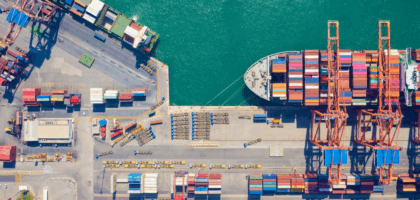On June 30, 2020, China adopted a contentious national security law that allows Beijing to override Hong Kong’s judicial system and target political opponents in the city, stripping the territory of autonomy promised under the 1997 handover agreement with Britain. Effective the same day, the U.S. Department of Commerce suspended regulations affording preferential treatment to Hong Kong over China, and also issued new export restrictions limiting exports of certain items to China, Russia, and Venezuela.
Background
On July 1, 1997, after 156 years of British colonial rule, Hong Kong became a Special Administrative Region (SAR) of the People’s Republic of China. Under the concept of “one country, two systems,” Hong Kong was guaranteed a high degree of autonomy—except in foreign affairs and defense—and a promise that the social and economic system, lifestyle, and the rights and freedoms enjoyed by the Hong Kong people, would remain unchanged for at least 50 years.
On the eve of the 23rd anniversary of that date, Chinese lawmakers voted unanimously to circumvent Hong Kong’s politicians and curtail most of those freedoms. These moves by China and the United States are the latest in a series of escalating tensions between the two nations.
Current Status
The Trump administration has placed new restrictions on U.S. exports of defense equipment and certain high-technology products to Hong Kong. The administration determined in late May that Hong Kong no longer had significant autonomy under Chinese rule and promised to begin stripping away Hong Kong’s privileged status with the United States if Beijing continued to crack down on civil liberties. Exports to Hong Kong will now be subject to the same types of controls that apply to China. Those controls block American companies from selling certain types of sensitive, high-technology products that could threaten national security to China, Russia, and other countries deemed to be a security risk. Additionally, exporters making Electronic Export Information (EEI) filings for exports to China, Russia, or Venezuela must include the correct ECCN for all items being exported, even if no license is required for the export, including those shipments that would normally be exempt from filing requirements falling under the $2,500 valuation threshold.
In a separate, unrelated action, the DOD issued a list last week of 20 Chinese companies, including Huawei, Hikvision, and several state-owned entities, including Aviation Industry Corporation of China, China Railway Construction Corporation, and China State Shipbuilding Corporation, that are all deemed to qualify as “military companies operating in the United States.” While the timing of this recent DOD publication is very curious, it is not clear what the Administration will do about imposing sanctions or enacting other export control restrictions (i.e. designation on the BIS Entity List), or if they will take no action against the 20 Chinese companies, some of which are already on the BIS Entity List.
Impact
No items subject to the EAR may be exported to Hong Kong, re-exported to Hong Kong, or transferred within Hong Kong based on an authorization provided by a license exception, except for transactions that would otherwise be eligible for a license exception if exported to China. Instead, a license must be sought and obtained whenever a license requirement applies for an export to, a re-export to, or a transfer within Hong Kong. All exports to China subject to the Commerce Control List require EEI filing, regardless of value. “In response to the mistaken U.S. action, China will take necessary countermeasures to firmly defend our own national interests,” Foreign Ministry Spokesman Zhao Lijan said. “Intimidating China will never work.”
Resources:
- U.S. Halts High-Tech Exports to Hong Kong (New York Times)
- New Export Control Restrictions Take Effect (Alston & Bird)
- China Vows Retaliation After U.S. Bans Defense Exports (SCMP)



